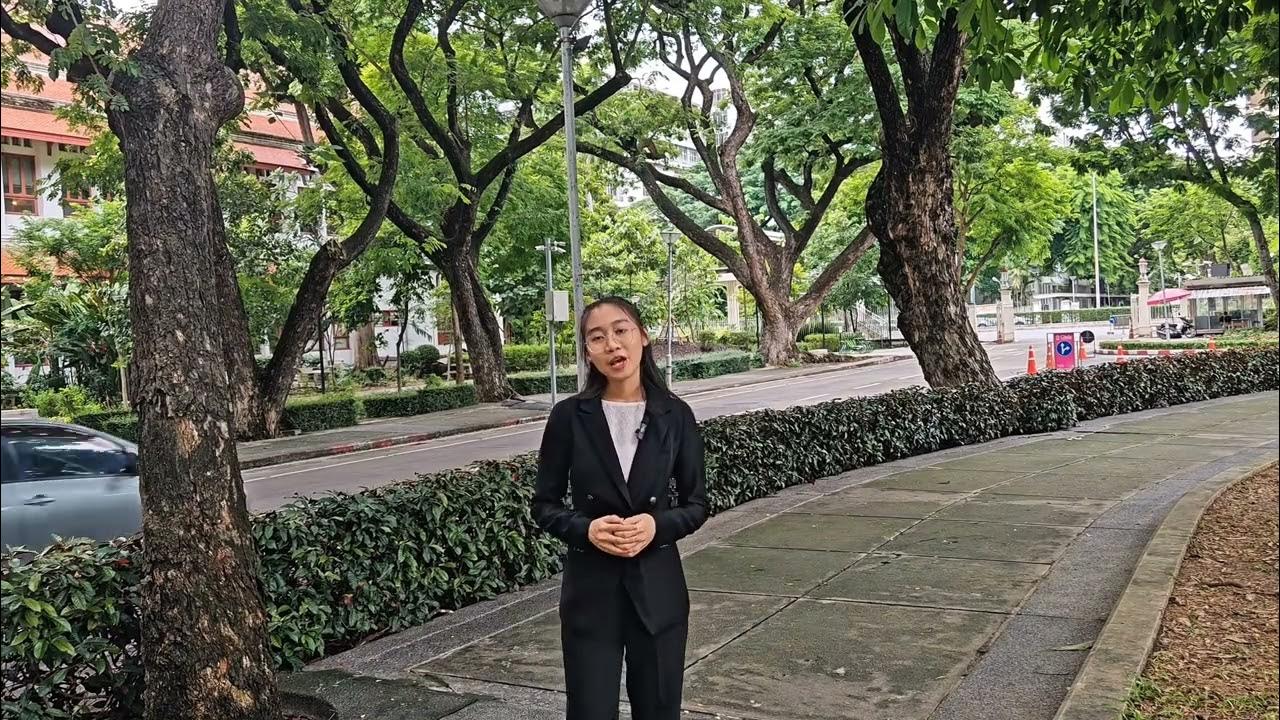Marine Pollution
Summary
TLDRCaptain Charles Moore highlights the devastating impact of human waste on our oceans, with 80% of marine pollution originating from land. Plastics, not recycled, constitute over 60% of marine debris, while nutrient runoff creates dead zones. The video calls for action to clean up waste, emphasizing the ocean's vital role in sustaining life, and directs viewers to www.state.gov/ourocean/action for solutions.
Takeaways
- 🌍 'Only we humans make waste that nature can't digest.' - This highlights the unique responsibility humans have in creating waste that nature struggles to process.
- 🌱 'Farms. Plastics. Make our lives easier.' - These are examples of human activities and materials that, while convenient, contribute to environmental issues.
- 🏞️ 'To our ocean. 80% of marine pollution starts on land.' - This emphasizes the significant impact of land-based activities on ocean health.
- 🌊 'Giant garbage patches threaten not only wildlife, but our safety and our health.' - It underscores the far-reaching consequences of marine pollution.
- 🔄 'Plastics not recycled account for over 60% of marine debris.' - This points to the need for improved recycling practices to reduce plastic pollution.
- 🌿 'Nutrient runoff overloads ecosystems, depleting oxygen and creating dead zones where life cannot survive.' - This illustrates the detrimental effects of agricultural runoff on aquatic life.
- 🌊 'We need a healthy ocean. It covers almost ¾ of our planet.' - This stresses the importance of ocean health for the overall health of our planet.
- 🌐 'We depend on it for life.' - This reminds us of the ocean's vital role in sustaining life on Earth.
- 🔧 'How can we clean up our waste? Become part of the solution.' - This is a call to action for individuals to participate in waste reduction and management efforts.
- 🌐 'Produced by the U.S. Department of State' - This indicates the source of the video and its potential alignment with governmental environmental initiatives.
Q & A
Who is Captain Charles Moore and what is his statement about human waste?
-Captain Charles Moore is an environmental activist known for his work on plastic pollution. His statement, 'Only we humans make waste that nature can't digest,' emphasizes the unique impact of human-made waste on the environment.
What is the significance of the hashtag #OurOcean2014 mentioned in the script?
-#OurOcean2014 likely refers to a social media campaign or event that took place in 2014, focused on raising awareness about ocean conservation and the issues affecting our oceans.
How do farms contribute to marine pollution according to the script?
-Farms contribute to marine pollution through nutrient runoff, which overloads ecosystems, depleting oxygen and creating dead zones where life cannot survive.
What role do plastics play in marine pollution, as stated in the script?
-Plastics play a significant role in marine pollution, with non-recycled plastics accounting for over 60% of marine debris.
What percentage of marine pollution is said to start on land in the script?
-According to the script, 80% of marine pollution starts on land.
What are 'giant garbage patches' and how do they threaten wildlife and human safety?
-Giant garbage patches are large areas in the ocean where debris accumulates, threatening wildlife by entangling or being ingested by marine animals and posing a risk to human safety and health through the contamination of water and food sources.
Why is a healthy ocean important according to the script?
-A healthy ocean is important because it covers almost three-quarters of our planet and we depend on it for life.
What steps can individuals take to clean up waste as suggested by the script?
-Individuals can become part of the solution by participating in efforts to reduce waste and pollution, such as recycling plastics and reducing nutrient runoff from farms.
What is the website provided in the script for more information on ocean conservation?
-The website provided in the script for more information on ocean conservation is www.state.gov/ourocean/action.
Who produced the video script and what organizations provided footage for it?
-The video script was produced by the U.S. Department of State. Footage was courtesy of AP Images, the National Oceanic and Atmospheric Administration, and the Oregon Department of Fish and Wildlife.
What is the main message of the script regarding human waste and its impact on the ocean?
-The main message of the script is that human waste, particularly plastics and nutrient runoff from farms, is causing significant harm to marine ecosystems and needs to be addressed to ensure a healthy ocean.
Outlines

This section is available to paid users only. Please upgrade to access this part.
Upgrade NowMindmap

This section is available to paid users only. Please upgrade to access this part.
Upgrade NowKeywords

This section is available to paid users only. Please upgrade to access this part.
Upgrade NowHighlights

This section is available to paid users only. Please upgrade to access this part.
Upgrade NowTranscripts

This section is available to paid users only. Please upgrade to access this part.
Upgrade NowBrowse More Related Video

SAMPAH PLASTIK MULAI MEMBAHAYAKAN KEHIDUPAN LAUT DUNIA

Merman, Ocean Pollution Film หนังสั้นอนุรักษ์ เรื่องจริงของทะเล โดยมนุษย์เงือก"ทราย สก๊อต"

Um Mar de Lixo - Legendado

ASEAN Youth Video Speech Challenge - Phyu Thazin Thin

Removing 30,000,000 Pounds of Trash Will Actually Have This Impact #TeamSeas

Sustainable Development Goal 14 - Life Below Water - Tracey Rogers
5.0 / 5 (0 votes)